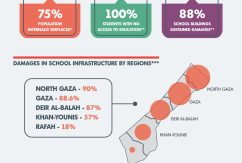Euromed Justice
Brief Description
The EuroMed Justice programme further develops the concept of a sustainable cooperation mechanism for cross-border judicial cooperation in criminal matters between EU Member States (EU MSs) and the South Partner Countries (Algeria, Egypt, Israel, Jordan, Lebanon, Libya, Morocco, Palestine, Syria and Tunisia, hereafter jointly referred to as SPCs).
It strengthens strategic cooperation between national law enforcement authorities in SPCs, as well as between SPCs and EU MSs and EU agencies, with the direct involvement of Eurojust and the European Judicial Network (EJN).
EuroMed Justice builds upon lessons learnt and achievements from the previous phases of the programme, drawing inspiration in particular from the key elements of success of EuroMed Justice IV.
Countries covered: Neighbourhood South countries
Objectives
Overall objective:
– Contribute to protecting the EU neighbouring countries’ citizens against criminal activities, respecting the rule of law and human rights
Specific objective:
– Strengthen the strategic cooperation in judicial criminal matters in three axes: (1) amongst national judicial authorities in SPCs; (2) between SPCs and EU MSs and (3) with EU judicial cooperation instances.
Actions in brief
Expected outputs and related activities:
- Sustainable coordination and cooperation mechanisms:
- Regular CrimEx (Criminal Experts Group) meetings;
- Set up the EuroMed Judicial Network in Criminal Matters;
- Organise the EuroMed Forum of Prosecutors General.
- The regional training platform is strengthened:
- Create a repository for all EuroMed Justice training materials;
- Update the existing training materials;
- Organise joint specific training on thematic areas for practitioners from South Partner Countries and EU MSs;
- Finance study visits and exchanges;
- Finance the participation of SPCs practitioners in the training program of other platforms;
- Ad hoc technical assistance upon request of minimum one SPC and one EU MS.
- Practical tools facilitating cross-border cooperation are updated and new ones developed:
- Continuous update of the CrimEx documents and tools;
- Preparation of new CrimEx documents.
- Joint cross-border cooperation activities are supported:
Facilitate cooperation on cross-border cases.



































